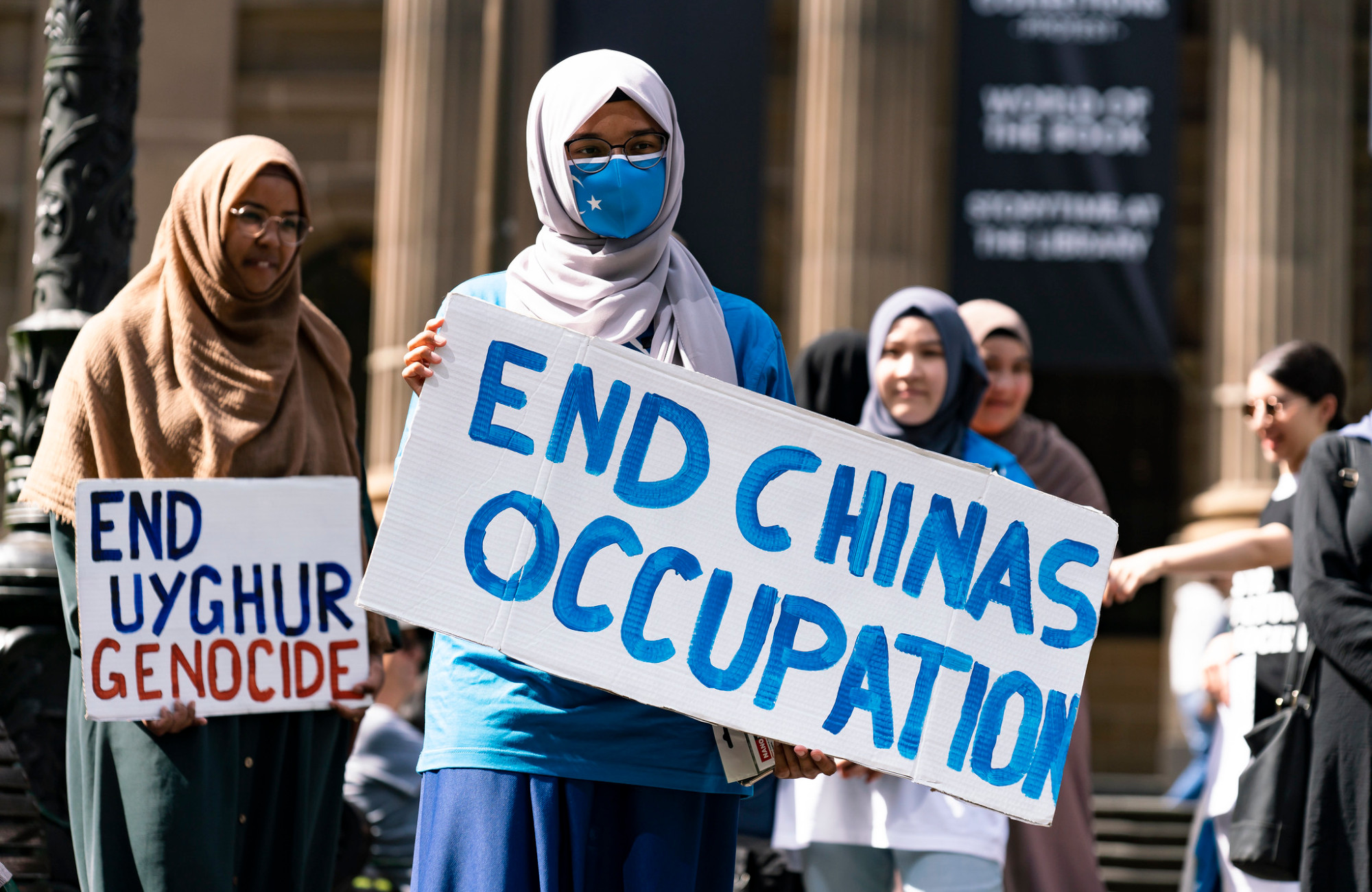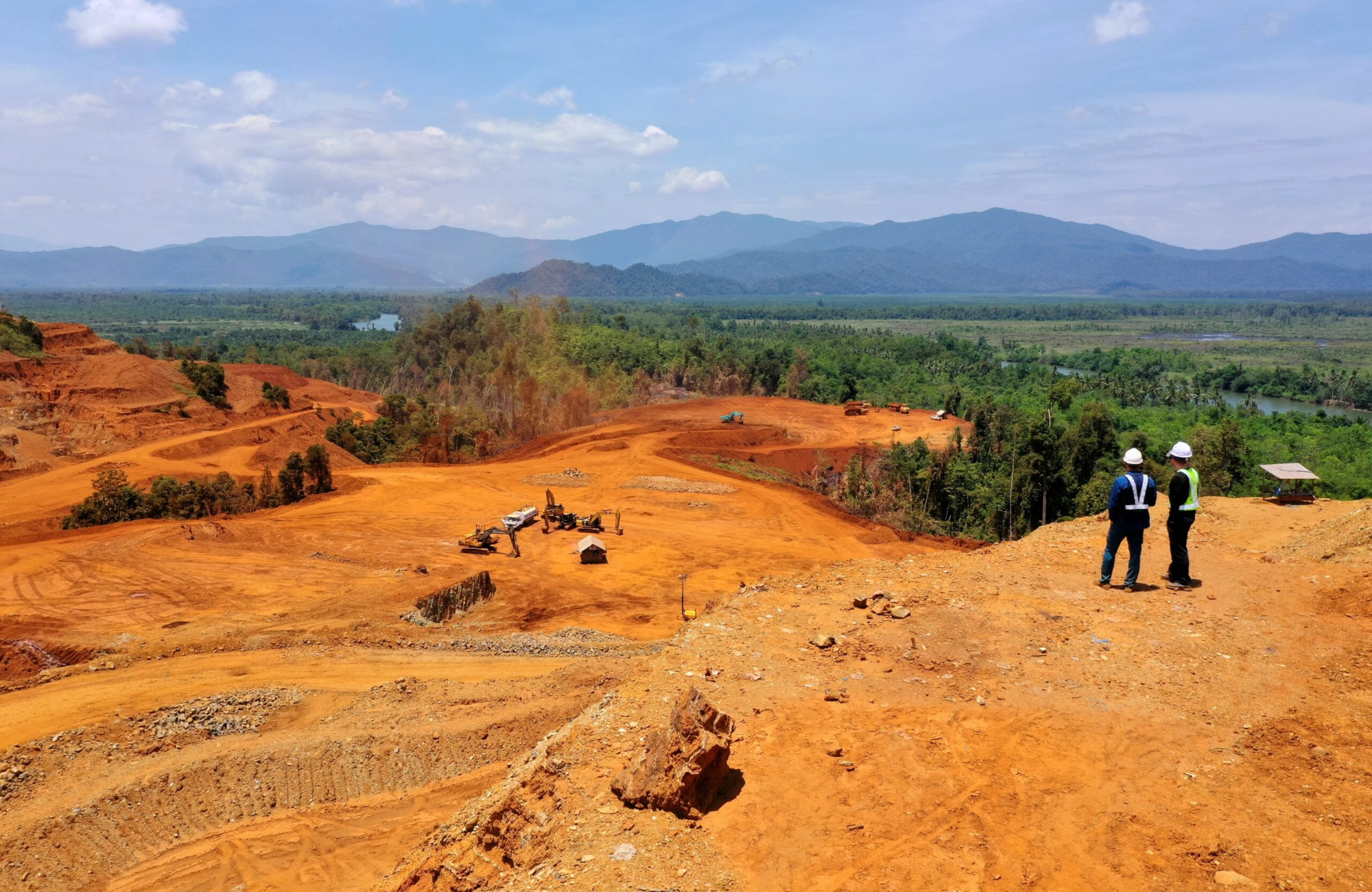The past year has been a legislative heyday for green transition and supply chain due diligence regulations. European and North American governments have been compiling lists of critical minerals, sketching out plans to source them ethically, drafting regulations to promote electric vehicle (EV) usage, and linking tax benefits to responsible sourcing expectations.
Car manufacturers would particularly benefit from strong, new regulation. The industry has historically ranked poorly on human rights and environmental standards and it is now becoming reliant on sourcing key components from forced labour in China’s Xinjiang Uyghur Autonomous Region (XUAR), home to an ongoing labour-linked genocide. As detailed in the Helena Kennedy Centre’s Driving Force report, in 2021 more than 100 international automotive parts or car manufacturers had exposure to forced goods made with Uyghur forced labour.
There is every risk this worsens with the transition to EVs. China is actively setting policy goals around dominating the market and expanding it into the XUAR, both because materials (like lithium and zinc) can be mined there and because the processing is energy-intensive and environmentally risky, disincentivising other countries and regions from pursuing it. Market forces are not strong enough to drive the rapid ramp-ups in production that are needed to meet the world’s 2030 and 2050 climate goals, leaving a wide opening for China to shepherd its industrial actors into the space.
To stop this from happening, regulators need to learn from recent mistakes with the solar power industry. In 2021, researchers found that the majority of the world’s polysilicon was being refined through forced labour in the XUAR. US regulators implemented forced labour bans and halted nearly a billion dollars of solar panel shipments at US borders. A domino effect ensued, creating major uncertainty for manufacturers, importers and installers of solar panels.
There is now regulation and enforcement driving market shifts in solar, and it can do the same for EVs. The US Uyghur Forced Labor Prevention Act (UFLPA) and accompanying Withhold Release Orders (WROs) where US customs agents halted imports from the XUAR at the border, have had ripple effects across the solar industry already, affecting polysilicon shipments out of China as well as manufactured panels out of Malaysia and other southeast Asian countries. These forced labour laws created real financial risks for solar companies.
Despite attempts to hide behind supplier attestations and third-party audits, scrutiny revealed that supplier promises were unverifiable, compromised by a countervailing Chinese law against helping foreign investors divest from the XUAR. At the same time, auditors began facing reprisals for asking questions about Uyghur rights and were found to be acting fraudulently when they turned up nothing.[1] Though these enforcement efforts derived from an UFLPA assumption that any good produced in whole or in part in the XUAR is linked to abuses (called the “rebuttable presumption”), it also informs European enforcement opportunities. That is because efforts to reverse WROs produced substantiation of harm (actual indications of a possible violation). This “substantiated knowledge” of harm is now the standard in Germany’s supply chain due diligence law as well as in the EU draft directive on supply chain due diligence.
The enforcement efforts against solar caused a short-term crisis, but support from the financial sector has been a boon to the industry, and could likewise bolster the EV industry. Although private banks have done little to foster the development of alternative supply chains for the solar industry enforcement efforts, some development finance institutions have accelerated development of alternate photovoltaic sourcing. The US Development Finance Corporation (DFC) invested $500m in a vertically integrated photovoltaic material producer in India in December 2021, coming online this year. This supply chain investment gave panel makers an alternate supplier in an 18-month timeline, rather than industry’s predicted 5-10 year estimate. If banks actively enforce their own social standards for investments in their green transition loans and equity agreements, they could prevent EV manufacturing from facing the same supply chain crises that afflicted photovoltaics.
The final lesson EVs can draw from solar is that creative collaboration with human rights experts will generate solutions. As the photovoltaic industry began grappling with the reality that solar energy was being produced at existential cost to Uyghurs, detractors lamenting enforcement efforts claimed that supply chain diversification was “impossible”. As was the case for solar, the detractors pushing back against EV regulations have no expertise in supply chain due diligence or human rights. Their concerns reflect the limitations of current efforts, not barriers to novel ones. Karl Haeugesen, the President of the Mechanical Engineering Association VDMA, offers a compelling example. He penned an editorial to declare that human rights due diligence to identify human rights abuses in supply chains is “not practically feasible.”[2] His perspective makes sense if he imagines doing the work himself. It would not be practically feasible for a human rights expert to manufacture machinery or engineer a mining plant, so we rely on experts in those fields to determine practical feasibility of that work, which demonstrably gets done.
The UK Parliament has publicly debated the ‘feasibility’ of human rights due diligence in polite letters between the House of Commons and the House of Lords. Notably absent in the exchanges between the Minister for Business, Energy and Corporate Social Responsibility and the Chair of the Business, Energy and Industry Strategy Committee of the House of Commons is any reference to experts in the field of business and human rights. Mr. Haeugesen’s case for restricting due diligence to “their own operations, subsidiaries, and suppliers at the first tier of the upstream supply chain” lacks creativity and expertise. Comments like his are a distraction.
These detractors do touch on one crucial point: the status quo is insufficient to meet the needs of a green and ethical transition. The EV industry will need to follow solar’s lead in finding new ways of doing things. Supply chain due diligence will need to extend beyond first-tier suppliers and trace high-risk materials back to processing and mining. Procurement teams will need new capacity in foreign language research, to accurately identify their suppliers by their home-country names (this point was reinforced in recent US Senate requests to automotive manufacturers sourcing parts and materials from XUAR).
As companies identify their links to human rights abuses, they will need resources to seek out new suppliers, and a mandate from the top to look beyond the lowest-cost options. It will take work, but as governments demonstrate their seriousness about banning genocidal supply chains, it is necessary and right for companies to rise to the occasion.
Endnotes
[1] ‘State Dept. fears Chinese threats to labor auditors‘, Axios, 24/6/2021; ‘Chinese authorities reportedly interrogated workers linked to US company Verité, which investigates supply-chain labor abuses in the country‘, Business Insider, 24/6/2021; ‘Big Four auditors squeezed between US and China‘, Financial Times, 29/4/2021
[2] On a separate occasion, the VDMA called supply chain due diligence “a political fairy tale.”
Kendyl Salcito is the Executive Director of the nonprofit human rights research organisation NomoGaia, and an Adjunct Professor at University of Denver’s Sturm College of Law. She has worked with the Helena Kennedy Centre Forced Labour Lab on their reports into Xinjiang and international supply chains.
Read more:

- Opinion
- By Amanda Hurowitz
- 5 May, 2023






